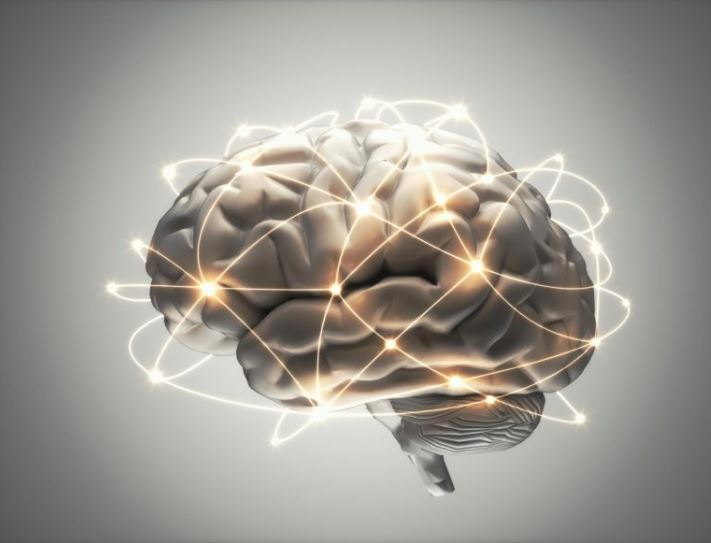


 1:46:0
1:46:0  2025-04-30
2025-04-30  1002
1002

Teens who go to bed earlier and sleep longer have better brain function and perform better on cognitive tests, a large US study shows, even small differences in sleep duration made a measurable impact.
A joint study by researchers in the UK and China has found that adolescents who go to bed earlier and get more sleep than their peers tend to perform better on cognitive tests and exhibit stronger brain function.
However, the research, which focused on teenagers in the United States, also revealed a concerning trend: even those with relatively healthy sleep habits were still not getting the recommended amount of sleep for their age group.
Sleep is essential for the proper functioning of the body and brain. During sleep, the brain clears out accumulated toxins, strengthens and refines neural connections, and supports critical functions such as memory, learning, and problem-solving. In addition to cognitive benefits, adequate sleep is known to boost the immune system and support mental health.
During adolescence, our sleep patterns change. We tend to start going to bed later and sleeping less, which affects our body clocks. All of this coincides with a period of important development in our brain function and cognitive development. The American Academy of Sleep Medicine says that the ideal amount of sleep during this period is between eight- and 10-hours’ sleep.
Professor Barbara Sahakian from the Department of Psychiatry at the University of Cambridge said: “Regularly getting a good night’s sleep is important in helping us function properly, but while we know a lot about sleep in adulthood and later life, we know surprisingly little about sleep in adolescence, even though this is a crucial time in our development. How long do young people sleep for, for example, and what impact does this have on their brain function and cognitive performance?”
A Data-Driven Approach to Studying Sleep
Studies looking at how much sleep adolescents get usually rely on self-reporting, which can be inaccurate. To get around this, a team led by researchers at Fudan University, Shanghai, and the University of Cambridge turned to data from the Adolescent Brain Cognitive Development (ABCD) Study, the largest long-term study of brain development and child health in the United States.
As part of the ABCD Study, more than 3,200 adolescents aged 11-12 years old had been given FitBits, allowing the researchers to look at objective data on their sleep patterns and to compare it against brain scans and results from cognitive tests. The team double-checked their results against two additional groups of 13-14 years old, totalling around 1,190 participants. The results are published today in Cell Reports.
The team found that the adolescents could be divided broadly into one of three groups:
Sleep, Brain Structure, and Cognitive Performance
Although the researchers found no significant differences in school achievement between the groups, when it came to cognitive tests looking at aspects such as vocabulary, reading, problem solving, and focus, Group Three performed better than Group Two, which in turn performed better than Group One.
Group Three also had the largest brain volume and best brain functions, with Group One the smallest volume and poorest brain functions.
Professor Sahakian said: “Even though the differences in the amount of sleep that each group got was relatively small, at just over a quarter-of-an-hour between the best and worst sleepers, we could still see differences in brain structure and activity and in how well they did at tasks. This drives home to us just how important it is to have a good night’s sleep at this important time in life.”
First author Dr Qing Ma from Fudan University said: “Although our study can’t answer conclusively whether young people have better brain function and perform better at tests because they sleep better, there are a number of studies that would support this idea. For example, research has shown the benefits of sleep on memory, especially on memory consolidation, which is important for learning.”
The researchers also assessed the participants’ heart rates, finding that Group Three had the lowest heart rates across the sleep states and Group One the highest. Lower heart rates are usually a sign of better health, whereas higher rates often accompany poor sleep quality like restless sleep, frequent awakenings, and excessive daytime sleepiness.
Because the ABCD Study is a longitudinal study – that is, one that follows its participants over time – the team was able to show that the differences in sleep patterns, brain structure and function, and cognitive performance, tended be present two years before and two years after the snapshot that they looked at.
Senior author Dr Wei Cheng from Fudan University added: “Given the importance of sleep, we now need to look at why some children go to bed later and sleep less than others. Is it because of playing videogames or smartphones, for example, or is just that their body clocks do not tell them it’s time to sleep until later?”
Reality Of Islam |
|

A new metas

As air frye

A newly dev
 9:3:43
9:3:43
 2018-11-05
2018-11-05
10 benefits of Marriage in Islam
 7:5:22
7:5:22
 2019-04-08
2019-04-08
benefits of reciting surat yunus, hud &
 9:45:7
9:45:7
 2018-12-24
2018-12-24
advantages & disadvantages of divorce
 11:35:12
11:35:12
 2018-06-10
2018-06-10
 6:0:51
6:0:51
 2018-10-16
2018-10-16
 2:34:48
2:34:48
 2022-01-18
2022-01-18
 5:57:34
5:57:34
 2023-03-18
2023-03-18
 7:26:19
7:26:19
 2022-04-08
2022-04-08
 8:3:0
8:3:0
 2018-06-21
2018-06-21
 4:25:57
4:25:57
 2023-02-11
2023-02-11
 8:30:23
8:30:23
 2022-03-03
2022-03-03
 3:43:50
3:43:50
 2022-11-05
2022-11-05
 5:41:46
5:41:46
 2023-03-18
2023-03-18
| LATEST |